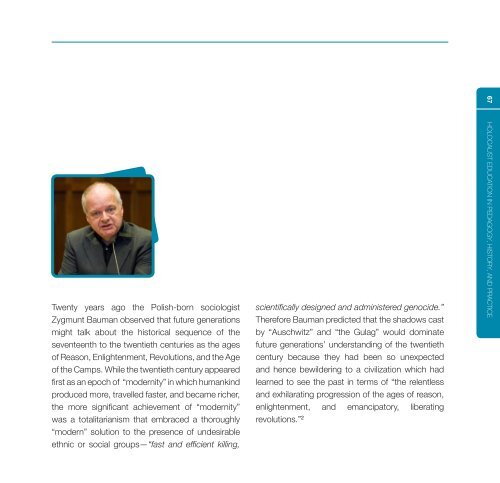2kNreeJ
2kNreeJ
2kNreeJ
Create successful ePaper yourself
Turn your PDF publications into a flip-book with our unique Google optimized e-Paper software.
Twenty years ago the Polish-born sociologist<br />
Zygmunt Bauman observed that future generations<br />
might talk about the historical sequence of the<br />
seventeenth to the twentieth centuries as the ages<br />
of Reason, Enlightenment, Revolutions, and the Age<br />
of the Camps. While the twentieth century appeared<br />
first as an epoch of “modernity” in which humankind<br />
produced more, travelled faster, and became richer,<br />
the more significant achievement of “modernity”<br />
was a totalitarianism that embraced a thoroughly<br />
“modern” solution to the presence of undesirable<br />
ethnic or social groups—“fast and efficient killing,<br />
scientifically designed and administered genocide.”<br />
Therefore Bauman predicted that the shadows cast<br />
by “Auschwitz” and “the Gulag” would dominate<br />
future generations’ understanding of the twentieth<br />
century because they had been so unexpected<br />
and hence bewildering to a civilization which had<br />
learned to see the past in terms of “the relentless<br />
and exhilarating progression of the ages of reason,<br />
enlightenment, and emancipatory, liberating<br />
revolutions.” 2<br />
67 HOLOCAUST EDUCATION IN PEDAGOGY, HISTORY, AND PRACTICE


